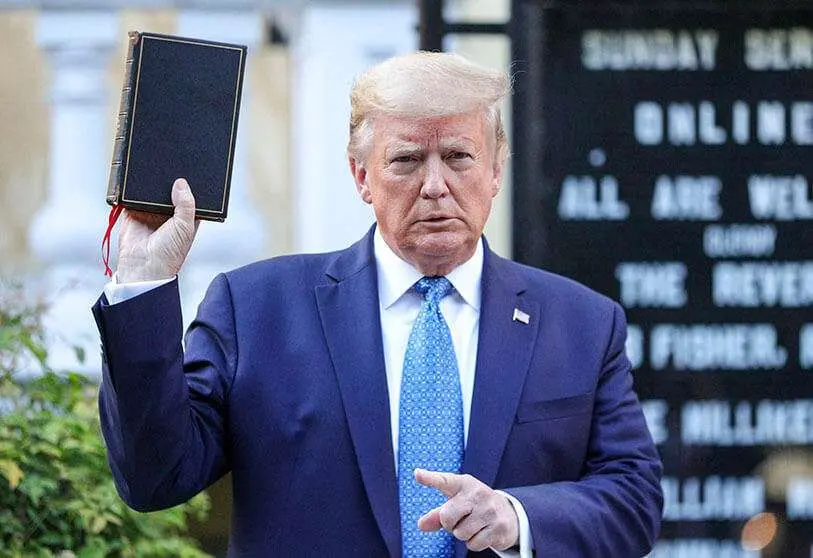Populism, a dead ideology in good health

The naked and futile reactions of the most famous populists in their efforts to tackle the pandemic crisis are a testimony that the limitations of problem-solving slogans lead to the irony that populists end up losing popularity. Under catastrophic situations, the political logic of demagogy, based on extreme polarization and the singling out of scapegoats, becomes its own Achilles' heel, because in the face of indiscriminate threats such as viral contagion, extreme positions on identity issues are perceived as futile: in the absence of alternative rhetoric, populist politicians are caught in the hamster wheel of social confrontation, when what the population expects of them is to lead in uniting society.
Far from achieving this, and in the absence of practical proposals for solving real crises, populists fall back on their adversaries' reputation, in the hope that they will be even less attractive than themselves in the eyes of the electorate, but with the effect that such a degree of tension generates even greater public disinterest, so that they have to keep increasing the intensity of the conflict and acting with ever greater histrionics.
The continuous torrent of accusations, insinuations, falsehoods and populist distortions not only intoxicate public life to the point of boredom, but also have the perverse effect of favouring the natural selection of politicians who are immune to public attacks. All this, far from making the best stand out, gives a competitive advantage to the cynics most immune to stigmatization in the public square, politicians as skilled with their words as they are incapable of pushing for improvements.
One of the paradoxes of the populist leaders who have emerged at the dawn of Twitter is that, despite promoting themselves as disruptive - and even revolutionary - they often defend involutionary proposals that denounce political reforms and advocate tacit conformity, in order to preserve the established order in which hierarchies of domination prevail based on the belief in a natural order of things, in which social structures are - and must remain - immutable, even if they are unjust. In the case of the current US president, this boils down to the trilemma 'God, Country and Dollar', with which he has gone no small way, thanks to his undeniable ability to combine lies with half-truths about the defects of the world order, managing with his peculiar language to make a majority of voters decide by giving more value to subjective opinions than to objective facts.
Now, however, the formula of escapism, national self-assertion, flattery of the 'common man', the attack on the 'elites' and the systematic projection of the frustrations of 'us' into 'them' reveals their powerlessness to unify a society ravaged -and desolate- by health psychosis and fear of the imminent economic future. And yet, the populist recipe continues to enjoy notable predicament among broad sectors of disaffected citizens, who resent the negative effects that globalization has had on their way of life, despite the fact that populist discourses are little more than arnica against their real problems. Because the truth is that once we move from the health crisis to the economic crisis, the conditions that favoured the emergence of populism will continue here, corrected and increased.
As we saw with the collapse of the banking system in 2008, the crossing of the ideological desert of the traditional parties left them without weapons or discursive baggage to channel the desperation of the victims of that crisis and extended the belief that the system only had a welfare function that created a dependence on the State that eroded the dignity of those who resented not being useful to society.
This is what Steve Bannon accurately read and synthesized in his call to "take up arms" to wage a war to destroy the post-war model of liberal order. Bannon rehearsed the art of emotional manipulation in Breitbart News (a portal for the propagation of "alternative facts", described by himself as a "killing machine"), developing the elements of a 'populist pack' whose template was key to the design of the Brexit supporters' triumph in June 2016 and Donald Trump's victory that same year. Not content with this, he set out to promote an international national-populist revolt against the "globalist elites", based on his recipe book, a sort of breviary of the populist inspired by historical references ranging from the Gracchus brothers of ancient Rome to the Benito Mussolini of modern times.
With these wicks, he chore a kind of illiberal 'holy alliance' which included Marine Le Pen from France's Front National, Viktor Orbán from Hungary's Fidesz, Beatrix von Storch from Germany's AfD and Geert Wilders from the Netherlands' Partij voor de Vrijheid; and, of course, the illustrious Matteo Salvini of the Italian La Liga, who has been working with Russian plutocrats like Konstantin Malofeev, who has made available to him the Katehon platform for the dissemination of illegitimate content in Europe.
It is true, however, that the gamble taken by Bannon and his acolytes has so far failed to achieve the desired ends and that the projects of Boris Johnson and Donald Trump are on the line, not to mention that the French Front National has suddenly discovered the discreet charm of Gaullism, It would be unwise to leave for dead a movement whose crude simplicity makes it the equivalent of the beodo lamppost, which is grabbed by those who need to hold on to anything, and who, like the Johnny Guitar in the movie, beg to be told pretty lies.

